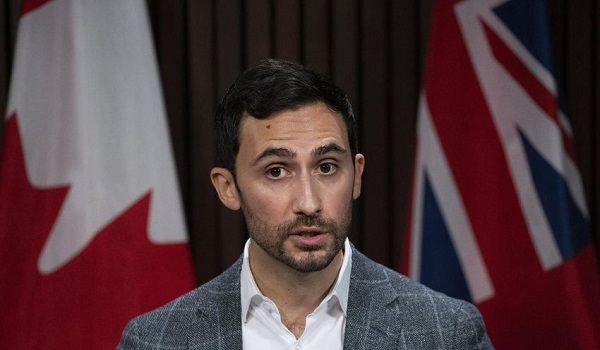Mark Holland promises to shore up ranks of healthcare workers
Canada’s health ministers wrapped up a meeting in Prince Edward Island without announcing any new bilateral deals to unlock federal cash promised in February, but they recommitted to tackling a nationwide shortage of health workers.
Discussions of how to recruit and keep doctors, nurses and other front-line care providers dominated the two-day gathering in Charlottetown, ministers told a news conference Thursday. An exodus of pandemic-exhausted health workers has left the public-health system struggling to provide primary care, keep rural emergency rooms open and catch up on surgical backlogs.
“We understand the challenges in health care,” said Mark McLane, PEI’s Minister of Health and Wellness. “The top three are staffing, staffing and staffing.”
Federal Health Minister Mark Holland, who took over the portfolio after a summer cabinet shuffle, and his provincial-territorial counterparts promised to improve the staffing situation by making it easier for internationally trained health workers to practise in Canada, including by allowing them to begin the credentialing process overseas.
The ministers also vowed to do a better job retaining experienced nurses in the public system, and to move ahead with portable licences that would allow health professionals to work across provincial boundaries without having to apply for a new licence in every jurisdiction. “We’ll focus on physicians this year and nursing in future years,” Mr. Holland said.
The Charlottetown gathering didn’t produce any new bilateral deals on health spending. In February, Prime Minister Justin Trudeau offered just more than $46-billion in new health funding to provinces and territories over 10 years, most of it made up of a modest increase to transfer payments and $25-billion for tailored, one-on-one agreements with each jurisdiction.
So far only British Columbia has signed a bilateral deal, although every province but Quebec agreed to the concept in principle. B.C. announced on Tuesday an agreement with Ottawa on how to spend $1.2-billion over three years, with stipulations that the province report publicly on whether it is achieving the goals of the agreement.
Mr. Holland said he expected to sign deals with other provinces “very, very soon.”
“You don’t have to wait very long,” he said. “But the reality is, we’ve got to get this right and respect the partnership we have with provinces.”
One province that appears unlikely to sign a bilateral deal soon is Quebec. During the news conference Thursday, Quebec Health Minister Christian Dubé reiterated his government’s position that it wouldn’t accept federal money with strings attached. “This is not negotiable,” he said. “For us, we’ve been very clear that health is a matter of provincial jurisdiction and we stick to that.”
Also discussed at the news conference was the prospect of a national pharmacare program, which Mr. Trudeau’s government promised the federal NDP as part of a supply-and-confidence agreement that is keeping the minority Liberals in power.
The Liberals say they’ll introduce pharmacare legislation before the end of the year, but it’s not clear how comprehensive the plan will be. The NDP rejected the Liberals’ first draft of the bill.
On Thursday, the Parliamentary Budget Officer released a new report estimating that a single-payer national pharmacare program with universal access would cost the public purse an additional $11.2-billion in the first year, when governments would begin picking up the tab for medications currently paid for through private insurance and out-of-pocket spending. The incremental cost is expected to rise to $13.4-billion in five years.
However, the PBO also predicted that, with the bargaining power of a national buyer, a single-payer plan would drive down pharmaceutical prices to produce economywide savings of $1.4-billion in 2024-25, rising to $2.2-billion in 2027-28.
Some provincial governments have previously expressed skepticism about plans for national pharmacare, but B.C. Health Minister Adrian Dix said he was looking forward to seeing what the federal government finally proposes.
“Every single provincial jurisdiction has been acting in this area,” he said, referencing his own government’s decision to provide universal coverage for contraceptives. “And the federal government is going to come forward with this legislation. And we’re looking forward to seeing what that looks like.”
This article was reported by The Globe and Mail
















